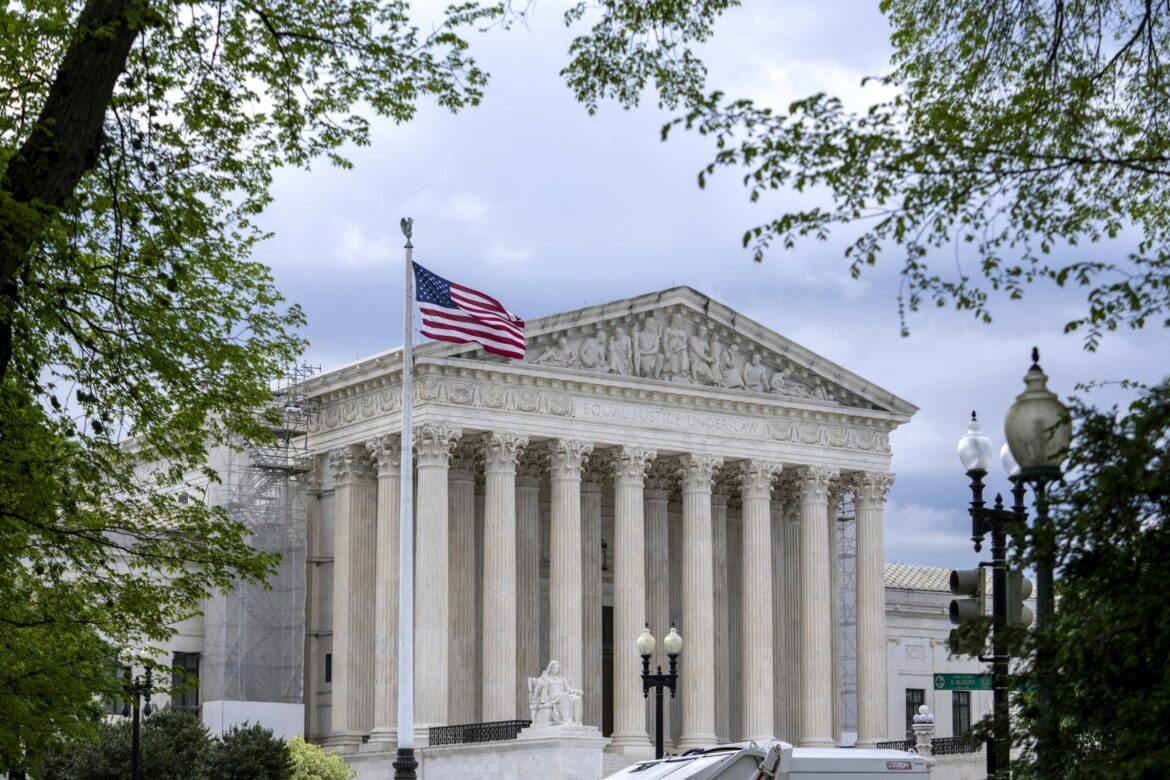Overview:
The Supreme Courtroom lifted a decrease court docket order that had briefly protected greater than 500,000 immigrants from deportation. The choice impacts Haitians and others who got here underneath humanitarian parole, leaving many dealing with an unsure and doubtlessly harmful future.
By LINDSAY WHITEHURST | The Associated Press – Further reporting and modifying by The Haitian Occasions
WASHINGTON (AP) — The Supreme Court on Friday once more cleared the way in which for the Trump administration to strip non permanent authorized protections from lots of of hundreds of immigrants for now, pushing the whole quantity of people that could possibly be newly uncovered to deportation to almost 1 million.
The justices lifted a lower-court order that stored humanitarian parole protections in place for greater than 500,000 migrants from 4 international locations: Cuba, Haiti, Nicaragua and Venezuela. The court docket has additionally allowed the administration to revoke non permanent authorized standing from about 350,000 Venezuelan migrants in one other case.
The court docket didn’t clarify its reasoning within the temporary order, as is typical on its emergency docket. Two justices publicly dissented.
Simply two days earlier than the Supreme Courtroom order, Haitian TPS holders—together with Brooklyn resident Gerald Michaud and his spouse Nadège—requested a choose to dam the Trump administration’s transfer to strip their authorized standing. Michaud, who got here to the U.S. after Haiti’s 2010 earthquake, mentioned, “I might lose my job. I might reside in concern. Every part I’ve labored so laborious to construct is in danger.”
He and his spouse are among the many 500,000 dealing with potential deportation.
“I filed this lawsuit not only for myself and my spouse,” Michaud mentioned, “however for lots of of hundreds of my fellow Haitians right here on TPS whose lives can be upended.”
What result in the Supreme Courtroom order?
Republican President Donald Trump promised on the marketing campaign path to deport tens of millions of individuals, and in workplace has sought to dismantle Biden administration polices that created methods for migrants to reside legally within the U.S. Trump amplified false rumors that Haitian immigrants in Ohio, together with these with authorized standing underneath the humanitarian parole program, had been abducting and consuming pets throughout a debate with then-Vice President Kamala Harris, in keeping with court docket paperwork.
His administration filed an emergency enchantment to the Supreme Courtroom after a federal choose in Boston blocked the administration’s push to finish this system. The Justice Division argues that the protections for individuals fleeing turmoil of their house international locations had been all the time meant to be non permanent, and the Division of Homeland Safety has the ability to revoke them with out court docket interference.
Justice Ketanji Brown Jackson wrote in dissent that the impact of the excessive court docket’s order is “to have the lives of half one million migrants unravel throughout us earlier than the courts resolve their authorized claims.” Justice Sonia Sotomayor joined the dissent.
What does the ruling imply?
Jackson echoed what U.S. District Decide Indira Talwani wrote in ruling that ending the authorized protections early would depart individuals with a stark alternative: flee the nation or danger dropping all the pieces. Her ruling got here in mid-April, shortly earlier than permits had been because of be canceled. An appeals court docket refused to carry it.
The Supreme Courtroom’s order is just not a closing ruling, but it surely means the protections is not going to be in place whereas the case proceeds. It now returns to the first U.S. Circuit Courtroom of Appeals in Boston.
Talwani, an appointee of Democratic President Barack Obama, did permit revocations of parole, however on a case-by-case foundation.
However the Trump administration argued the parole was granted en masse and the legislation doesn’t require ending it on a person foundation. Taking up every case individually can be a “gargantuan job,” and gradual the federal government’s efforts to press for his or her removing, Solicitor Normal D. John Sauer argued.
Biden used humanitarian parole greater than another president, using a particular presidential authority in impact since 1952.
Beneficiaries included the 532,000 individuals who have come to the USA with monetary sponsors since late 2022, leaving house international locations fraught with “instability, risks and deprivations,” as attorneys for the migrants mentioned. They needed to fly to the U.S. at their very own expense and have a monetary sponsor to qualify for the designation, which lasts for 2 years.
The Trump administration’s determination was the first-ever mass revocation of humanitarian parole, attorneys for the migrants mentioned. They referred to as the Trump administration’s strikes “the biggest mass illegalization occasion in fashionable American historical past.”
The case is the newest in a string of emergency appeals the administration has made to the Supreme Courtroom, a lot of them associated to immigration.
The lawsuit Svitlana Doe v. Noem, filed by Justice Motion Heart and Human Rights First on behalf of parole recipients, their U.S. sponsors, and Haitian Bridge Alliance, challenges the Trump administration’s determination to finish humanitarian parole and freeze associated immigration purposes. The case argues that halting these protections leaves migrants weak and with out authorized standing.
“As soon as once more the Trump Administration blatantly proves their disregard for the lives of these really in want of safety by taking away their standing and rendering them undocumented. We’ve already seen the traumatic impression on youngsters and households afraid to even go to high school, church or work, ” mentioned Guerline Jozef, Government Director and Founding father of Haitian Bridge Alliance.
The court docket has sided in opposition to Trump in different instances, together with slowing his efforts to swiftly deport Venezuelans accused of being gang members to a jail in El Salvador underneath an 18th century wartime legislation referred to as the Alien Enemies Act.
Further reporting by Zoltan Lucas

